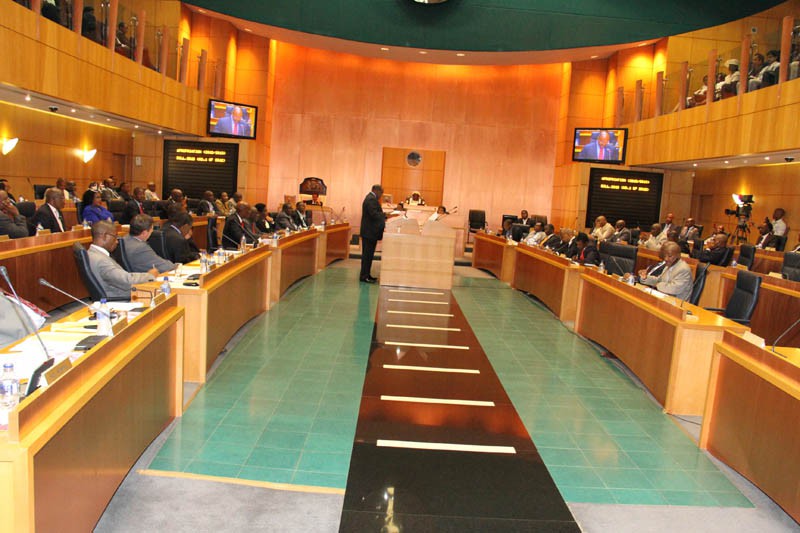Parliament seeks foreign-free private security
| Thursday July 16, 2015 16:40


Moreover, Members of Parliament say having foreign nationals at the helm of private security companies doing business here compromises national security. Contributing to the Private Security Bill yesterday, former commander of the ground forces in the Botswana Defence Force (BDF), Pius Mokgware said private security, as the first line of defense needs to be treaded diligently.
Mokgware therefore proposed that the licensing board be more cautions when approving these businesses in order to arrest the situation.
He said if this aspect is neglected, it could put the country at risk.
“We have to ensure that this area is reserved for indigenous Batswana, instead of generally saying the industry is reserved for citizens because it means even naturalised Batswana are allowed,” he said.
He queried the proliferation of such companies headed by people of Asian descent whom he says have ties with renowned terrorism groups such as ISIS. “Right now we don’t know what it is that they say when they meet. The licensing authority ought to be critical, and ensure that we don’t have foreigners as chief executive officers in local private security companies,” Mokgware said.
Moreover, the MP for Gabane-Mmankgodi said the suggested private security training academy meant to professionalise the industry as contained in the Bill has to follow the same ownership composition. The Minister of Justice, Defence and Security Shaw Kgathi told Parliament that private security companies have requested for the development of standards in the provision of security services and training of the guards hence the proposed academy.
“For these companies to provide quality services, they need to be graded in order to transform private security into a valuable profession where these companies can even offer body guarding services to diamantaires so we need to have well trained and qualified guards,” said Mokgware. “The training academy has to be monitored to ensure that they are not being trained on anything that can expose us to security threats.”
Minister of Youth, Sports and Culture Thapelo Olopeng consented that these companies be a reserve of locals, with 30 percent of them set aside for the youth.
“These have to be 100 percent citizen owned. In addition to reserving 30 percent for the youth, I propose that we reserve a certain percentage of tenders for security companies owned by these young people,” he said.
Olopeng said government must also consider shortening the time to settle payment as most young entrepreneurs in the business have decried late payment from clients, which in turn leads to delayed staff payment.
MP for Mahalapye West Joseph Molefhe reiterated that these companies be reserved for locals to avert potential security threats. The retired military officer added that the licensing board must be capacitated in order to accredit the training academy.
Moving the Private Security Services Bill, 2015 (Bill No. 9 of 2015) to be read for the second time, Kgathi said his ministry addressed three Pitso meetings with private security companies between 2012 and 2013.
“The general concern of the companies was that the Control of Security Guards Services Act has been overtaken by events,” said Kgathi.
He said they highlighted that the Act only provided for security guards while the industry has developed to include other private security services such as alarm and alarm response units, dog sections, closed-circuit television (CCTV), cash-in transit and others. “They proposed a review of the Act and adviced that the private security companies should be strictly regulated and a code of conduct enforced.”
